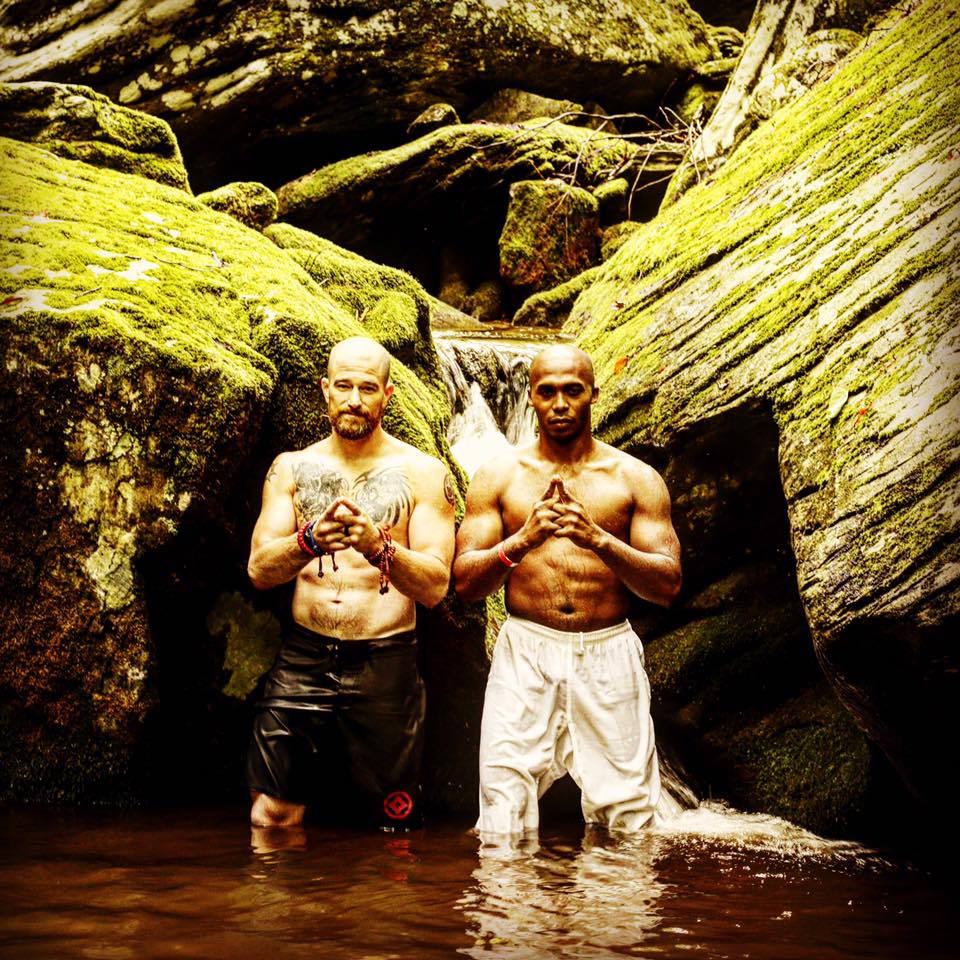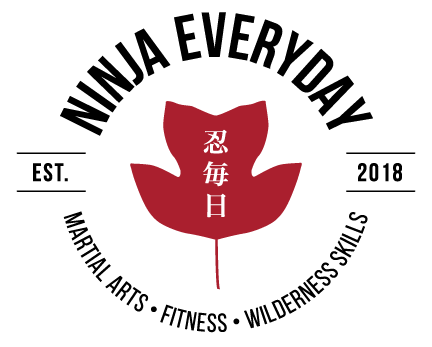 May
24
May
24
The Three Facets of the Warrior Mindset
- May 24, 2022
- 0 Comment(s)
The Three Facets of the Warrior Mindset.
I always hesitate to use the word “warrior.” I’m not a warrior in the truest usage of the word in that I’ve never been to war, and I’m grateful every day that people have gone to war, some making the ultimate sacrifice, on behalf of the safety and freedoms that I enjoy.
When I’m saying warrior here I want to give a name to the individual who is trying to make themselves more and more capable every day, ready to stand up to the innumerable and unpredictable challenges of life. Like people who take up difficult, life-enhancing martial arts practices for example.
I’m sure that we’ve all heard about the importance of a proper mindset when dealing with our struggles. I’m also sure that you know someone who has an unrealistic constant bubbly positive attitude and on the flip side, the self-labeled “realist”, who is really just a skeptic pessimist and constantly dragging energy down. Where would you want to be mentally as a warrior facing a legitimate threat?
Our To-Shin Do training highlights three facets of proper mindset to strive for that will allow us to stay emotionally controlled, appropriately detached (to see the big picture, real threat), and ready for anything while expecting nothing.
Mu-Shin: The absence of distracting thoughts, the opposite of “analysis paralysis”.
Fudo-Shin: An immovable consistent level of emotional control, not going too high or too low.
Zan-Shin: The ready state, present moment, aware and awake.
Mu-Shin:
Mu-Shin can be translated as “no-mind”. How could a warrior possibly benefit from the absence of “mind”? For us to grasp and utilize this concept we need to remember how good it feels to be absolutely clear-headed.
First, think back to a time when you were “in the zone”. For example, maybe you have had times on the mat when things were just happening for you almost without conscious control. The techniques were doing you rather than you doing the technique. Most of us of driving age have had this feeling behind the wheel, where we were forced to respond to a changing road situation without warning and somehow managed to avoid our obstacle through immediate responsive action. This “flow state” can be tapped into and trained by practicing activities that make us solve high-risk problems. Higher risk activities done at speed will force us to take those immediate actions, like randori or rolling.
The caveat is that you have to have completely developed the skills that you need before the time that you need them. You must build a response capability so well that it can be executed with “no mind”. That automaticity only comes from consistent precise practice. You can speed up the formation of the necessary mental pathways by adding an element of risk to the practice at an appropriate time, but it all comes down to proper practice.
My suggestion is to first learn and assimilate as many of the technical details into your movement as possible. After the details are ingrained into your movements then you can focus on removing all of the pauses from your technique. Finally, find the parts of the techniques that you can do simultaneously, to increase the efficiency of your movements. Details, Flow, and Efficiency focus as a method of skills development have really helped me be more precise with what I’m working on. I first heard this idea from Sensei Roy Harris during a seminar a couple of years back and I’ve been grateful for this structured approach ever since.
I’ll leave this post with two thoughts:
- Worry puts your mind in the future, and regret drags you into the past. Stay present. Infinite possibilities are present in every moment.
- Amateurs practice until they get it right, Professionals practice until they can’t get it wrong.
Fudo-Shin: The “Immovable Mind”.
One of the first battle strategies that I remember reading, I read in one of my first books on Ninjutsu tactics (I can’t remember the name of the book, I picked it up at Epcot Center when I was very young and it had the word “ruses” in the title). In the book, they wrote that the best times to attack an adversary included immediately after a sound defeat AND immediately after a crushing victory, because of the likelihood that both situations would affect your targets in a way as to make them more vulnerable. Emotional extremes, in either direction, can take us out of the present moment and can dull our awareness.
Of the states of mind that we’ve discussed in our previous posts, emotional regulation (Fudo-Shin) may be the most important of these mindsets for warriors to develop and likely one of the most difficult to make appreciable progress in. It, as a skill to be developed, has been a goal of mine but has been the least taught thing in the “mindfulness” arena in my personal experience.
I have had many regrettable emotionally fueled outbursts that I’m embarrassed by. I had a period of time where I held onto my explosive temper as an identifying personal characteristic… that I was proud of… I have felt the pain of and caused lots of suffering by losing myself to emotional impulses. I’m stressing this point because I do not want to come off as though I’m above this level of operating.
As a person who has been an emotional ass in the past, I am uniquely qualified to recognize the opposite state of being. On a training trip to Japan in the sort of recent past, I witnessed such a display of grace under pressure that I was shaken to my core by this person’s abilities.
My budo brother, Scott Akitoshi Bragg, had to take a call right before a training session that we were gearing up for. The call took longer than expected and I could tell from Scott’s demeanor that it wasn’t great news. After the call wrapped up and we got a few minutes to chat, Scott let me know that he had a major issue come up with one of his larger clients, and he was on the wrong side of the planet to do anything about it. I’m not going to go into the specifics but it sounded significant to me. But Scott shrugged it off and didn’t let it derail his trip one bit. I was so profoundly inspired by his ability to remain unaffected that Scott became my personification of the “Fudo-Shin” ideal.
A mental game that I play with myself that has benefited me in keeping control, particularly when dealing with challenging personalities, is as follows: 1. Consider that we may all be the same consciousness existing in different bodies at the same time. 2. If that is the case then everyone is “me”. Each person is me in their own unique circumstances and I/them is just doing the best that we/they can. 3. Then treat “me” as I would like to be treated. Easier said than done but a fantastic way to change your/our perspective…
Something that I think about with regard to my son that could be expanded to everyone: consider that you only get a finite amount of time with anyone (for example, you only get 18 years, at the most, to play with your kids as kids). How can you know which interactions “stick” and which interaction will be the last? Don’t waste a single second, everything matters, treat it as such.
With regard to not going too far in the other direction, consider the part of our Code of Mindful Action that states: I cultivate a positive attitude, a healthy body, and a clear mind, I avoid whatever would reduce my physical or mental well being. Celebrate your successes without excesses, and only in the company of those who fought along beside you towards your victories. Again, I’m not preaching to anyone but myself here.
Zan-Shin: The Ready Mind
In our dojo we practice Zan-Shin by following through with our kata practice by training ourselves to finish from a position of control (knee-on-belly (uki-gatamae), mount or mount variations, some form of submission or limb destruction), remain in kamae (positioned for continued engagement), or escaping the situation with a tactical retreat.
In a modern weapons training session, we would say “check your work through your sights” to force our students to get one more sight picture, rather than dropping the weapon to look over the sights.
These physical habits force us to stay engaged and not to admire our handiwork prematurely or for too long.
I believe that a solid “Zan-Shin ready-state” is only possible when the first two mindsets of Mu-Shin and Fudo-Shin are starting to become engrained in the practitioner. If you’re searching through your mental Rolodex for the appropriate S.O.P. (standard operating procedure) then you can’t be “ready”. Also, if you’re operating from a place of distraction then, again, you’re not “ready”.
The problem for me, with all of this, is that it’s never “checked off”, as in it’s just a natural way for me to live my life. I guess that is why it’s called mindfulness. If I’m not disciplined in the practice of examining myself carefully it’s all too easy to fall back into a level of complacency.
My wife and I will joke that sometimes when we are out and about I’m “on security”. In those moments I’m not checking my phone, partying too hard, or losing myself to the moment. In my defense, I notice way too often that no one else is “on security” and given the state of our world, someone needs to be.
I’m not saying that you can’t let your guard down but please do it at the right time. Jeff Cooper’s color code of awareness is a great tool to help us decide the appropriate level of awareness/distraction that is needed/acceptable in our specific situation. In the green/white phase of the color code model, when we are surrounded by concentric rings of security then, by all means, cut loose. But as soon as we leave the fortification of our homes, “up your game” by reducing your distractions.
As a situation increases up through the threat levels, continue to reduce your distractions as appropriate. Depending on the color code chart you’re exposed to, the first level is either green or white. Usually, the next level is yellow (general awareness), followed by orange (likely threat), then finally red (imminent threat).
So for example, in a “yellow situation” maintain a high level of general awareness by not getting lost in your phone, or any situation where your eyes are down for too long. In an orange situation avoid putting your eyes down at all, or better yet, set yourself up beforehand, so that everything you need is already close at hand or in hand.
And don’t worry about code red, you usually have the rest of your life to figure things out.
